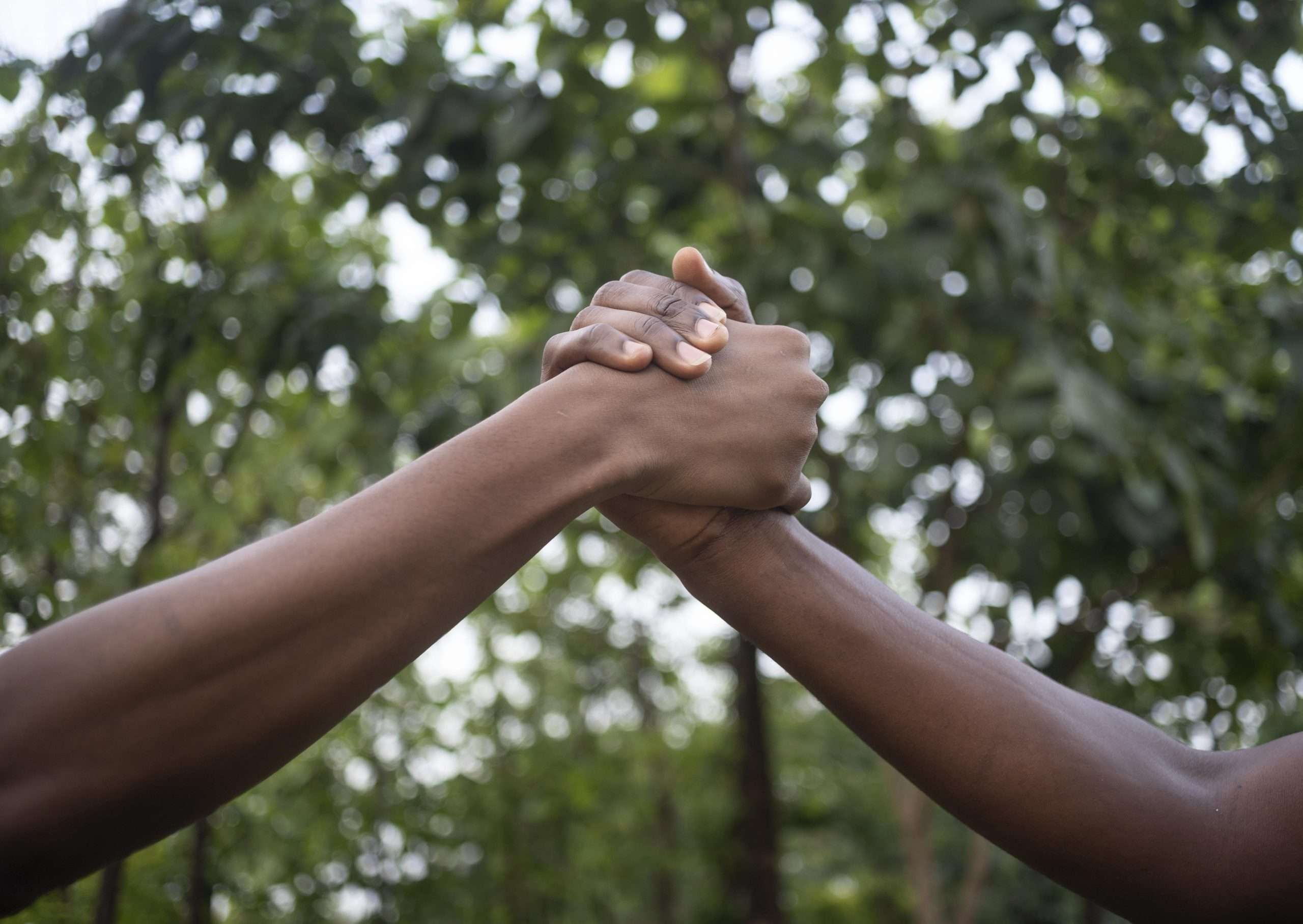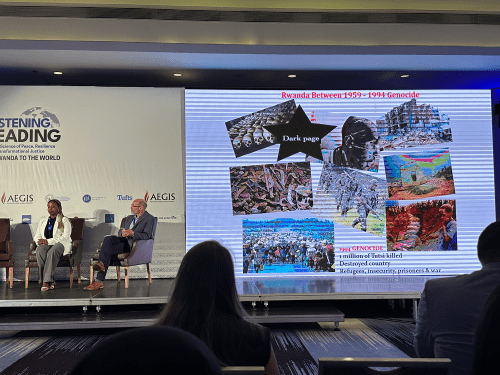
By Iftikhar Ahmad Shaheen, DT Global Country Director, Somalia
The three-day ‘Listening and Leading’ Genocide Aegis Trust Conference in Kigali, Rwanda, in late July, offered attendees a profound front-row seat into the country’s journey from genocide to reconciliation. With support from the Rwandan Ministry of Unity and Civic Engagement, the University of Kigali, and Tufts University, the event brought together survivors, academics, and peacebuilders to share firsthand lessons on peacebuilding.
For many participants, the conference provided their first opportunity to fully comprehend the horror of the 1994 genocide, which claimed nearly a million lives in less than 100 days. The conference underscored two pivotal points: the genocide was the fastest in history, and in most cases, the perpetrators were neighbors to the victims. Remarkably, survivors were able to identify specific individuals responsible for the murders and property destruction.
It is on this premise that the conference brought together dozens of renowned peacebuilding and trauma healing practitioners from the post-holocaust, the Srebrenica Massacre in Bosnia, and the crime against humanity in Cambodia, in addition to the hundreds of peacebuilders who worked in Rwanda for decades, as speakers.
Despite this horrific past, Rwanda’s transformation is a testament to human resilience. The country has become a model for recovery, with its 2005 Gacaca (pronounced ga-cha-cha) Justice Model inspiring trauma healing, community stabilization, and comprehensive recovery aspects in addition to social reconciliation efforts. It has also provided a solid framework for the work DT Global is undertaking in Somalia, Ethiopia, the Balkans, Syria, Sudan, and Ukraine.

To address the overwhelming backlog of genocide cases in the national court system and foster justice and reconciliation at the community level, the Rwandan government revived the traditional Gacaca court system.
In this Gacaca court system, communities at the local level elect judges to hear the trials of genocide suspects accused of all crimes except planning genocide, which are tried in the International Criminal Tribunal for Rwanda. This emphasizes the importance of combining transformative and transitional justice methods to effectively tackle the complexities arising from violent conflict.
The Transitional Justice model has also played a crucial role in achieving peace and tranquility by delivering justice to both individuals and society. Identifying perpetrators was essential under this model, as it set the stage for truth-based reconciliation and follow-up mechanisms. These twin approaches were particularly important given that, after the genocide, only 37% of the country's judicial staff remained.
Trauma healing and genuine forgiveness are key to long-lasting social cohesion. In protracted post-conflict scenarios, people often misinterpret the absence of actual communal conflict as ‘peace’, when it could be the transition between two or more active conflicts. Therefore, it's crucial to utilize this period for decompression, trauma healing, and identifying the community's collective potential to overcome the divisive factors.
We have learned from contexts like Somalia and South Sudan that confining community reconciliation only to cease-fire agreements, without a roadmap to further strengthen the reconciliation curve through mutual dependency, often leads to the fall-through of the agreements and frequently more violence than the original conflict. The three-day conference emphasized that planning for a collective future is impossible without mutual agreement on past mistakes and a collective understanding of the coexistence. It is crucial to establish a shared, truth-based understanding of the past and to explore the future through integrative bargains and a spirit of collective responsibility.
In addition, the conference delved into the complexities of peacebuilding, trauma healing, and reconciliation. Each of the presenters shared insights into Rwanda’s unique approaches, including the Gacaca courts and the community-based healing initiatives. Uniquely, the pivotal role of memorials, museums, and the arts in fostering social cohesion emerged as critical themes, with calls to foster their preservation amplified.
The conference also presented groundbreaking findings on epigenomics—the study of heritable changes other than those encoded in the DNA sequence—revealing that trauma can cause genetic changes that affect future generations. This stood out as a wake-up call for the need to heal at a personal level, which will ultimately contribute to community healing.
Former US President, Bill Clinton, opened the conference with a pre-recorded video message and welcomed other dignitaries, including UNESCO's Assistant Director General for Education Stefania Giannini, UN Special Advisor on the Prevention of Genocide Alice Wairimu Nderitu, and Dr. Serge Brammertz. This event was not only packed with lessons about fostering peacebuilding but also presented unique partnership opportunities.
Further, Dr Nicole Fleetwood, a professor at the University of New York and author of ‘Marking Times: Art in the Age of Mass Incarceration’, made a presentation on the current state of US prisons highlighting underlying racial and socioeconomic divides and ended her keynote by advocating for increased social justice and poverty alleviation efforts across the globe.
Fundamentally, the Kigali Aegis Trust conference was a catalyst for reflection and action. By examining Rwanda’s experiences, attendees gained a deeper understanding of the complexities of healing from mass trauma—at least from the magnitude of a genocide. The conference inspired hope and offered a roadmap for building more peaceful and just societies.